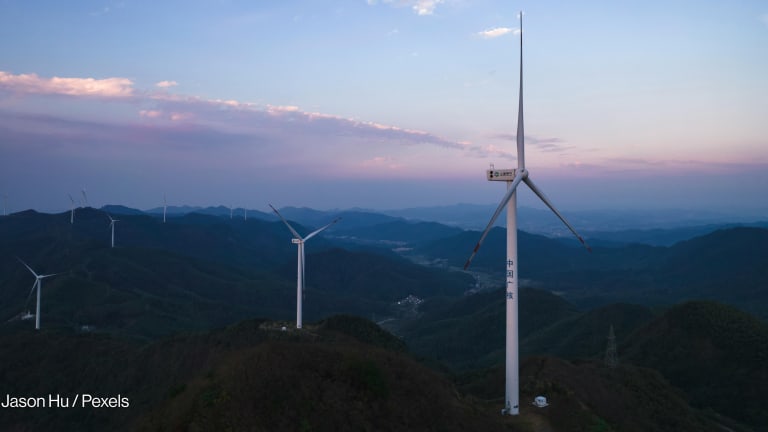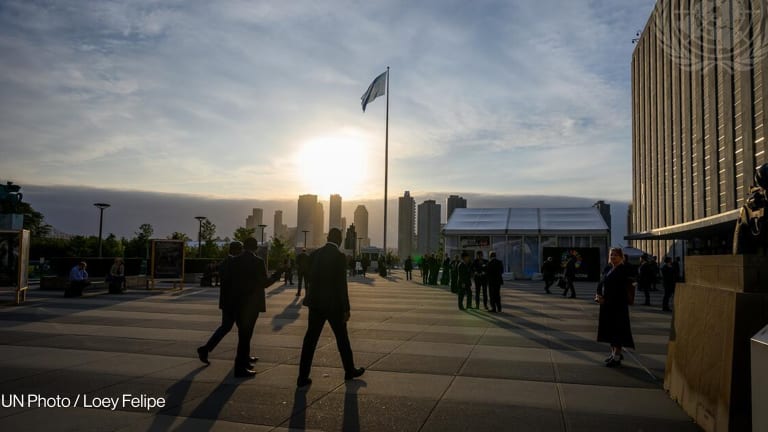
Over the past month, the world watched as more than 26,000 forest fires raged in the Amazon rainforest, often described as the “world's lungs,” holding 70 billion tons of carbon, and a global biodiversity hotspot.
In response, G-7 leaders pledged $20 million to help Brazil handle the situation. A noble effort, however, like most emergency funding, it will only address the crisis, not the underlying factors. The fires broadly result from farmers’ clearing land to farm. Emergency aid will not put food on farmers’ tables next year, when we will again watch even more trees cleared and fires flare up, unless we immediately recognize the importance of linking international development, climate, and biodiversity agendas in a way that provides practical, economical alternatives to citizens.
“This is a moment of immense opportunity for donors to respond to the evidence that sound climate policy is sound development policy.”
—The good news is that international assistance currently goes beyond emergency spending. The 30 members making up the OECD Development Assistance Committee gave over $1 billion in assistance to Amazon countries for agriculture, forestry, and environment activities in 2016, according to the most recent OECD data available. One may argue these amounts — like a lot of aid — could be higher, especially given the precious and precarious global resource at hand, but that $1 billion can make a significant difference. So, why are the world’s forests burning at an increasing rate?
The gap that exists between our climate and development agendas is a largely unrecognized problem and a confounding one. Economic and social development and climate and biodiversity are inextricably linked.

Activism. UHC. Climate. Read more of Devex's coverage from the 74th U.N. General Assembly.
For example, IPCC’s 2018 special report on global warming of 1.5 C predicts that if global greenhouse gas emissions do not roughly halve by 2030, several hundred million more people could be exposed to climate-related risks and poverty by 2050.
In 2017 alone, disasters triggered by weather and climate-related hazards caused thousands of deaths and $320 billion in losses. By 2050, there could be over 140 million climate migrants. Alternatively, combined action for growth and climate could yield a net positive impact on GDP. Limiting global warming to well below 2 degrees Celsius could yield a relative gain of $26 trillion by 2030, compared to current emissions-intensive development pathways.
Development co-operation has a central role to play in helping many developing countries mitigate climate change, become more resilient, and protect the people and places most at risk, both from the direct impacts of climate change and from the social and economic disruptions that the transition to new development pathways entails.
However, development finance is still being used for activities that undermine sustainable development. Foreign aid still supports fossil fuel-related activities at an alarming rate. A conservative estimate places average commitments of official development finance for upstream and downstream fossil fuels at $3.9 billion annually.
While many argue that climate action can and should be strategically integrated into all development projects, in 2016 and 2017, more than 80% of bilateral and 60% of multilateral development finance was given without consideration of its impact on the climate [according to forthcoming OECD data]. If we look at the energy sector — which is crucial — we see that climate-related development finance has stagnated at just under 60% since 2014, according to the most recent OECD data. Meanwhile, in the equally important agriculture, forestry and fisheries sector, 40% of development finance does not include any climate considerations, according to the same data.
This needs to change. Donors lack adequate mandates, resources, incentives, and strategies to re-orient aid to address the climate emergency, in support of positive national and regional efforts. This is a moment of immense opportunity for donors to respond to the evidence that sound climate policy is sound development policy. It’s literally $3.9 billion worth of opportunity to make better development investments that also help the climate goals.
Amidst calls to allow citizens to use their own land, development aid can promote alternatives to unsustainable practices that warm the climate. Until climate and development policies are aligned, the international community will continue to fight fires with fuel.
The year 2020 marks the implementation of the Paris Agreement rules and countries are expected to update their targets to reach the temperature goals outlined in the agreement. Alignment remains a huge opportunity to apply development finance in support of both development and climate.
With this in mind, OECD is preparing guidance for aligning development and climate action, which will be discussed on the margins of the U.N. Secretary-General’s Climate Action Summit next week and presented before UNFCCC’s COP25 in December 2019.
Activism. UHC. Climate. Read more of Devex's coverage from the 74th U.N. General Assembly.








